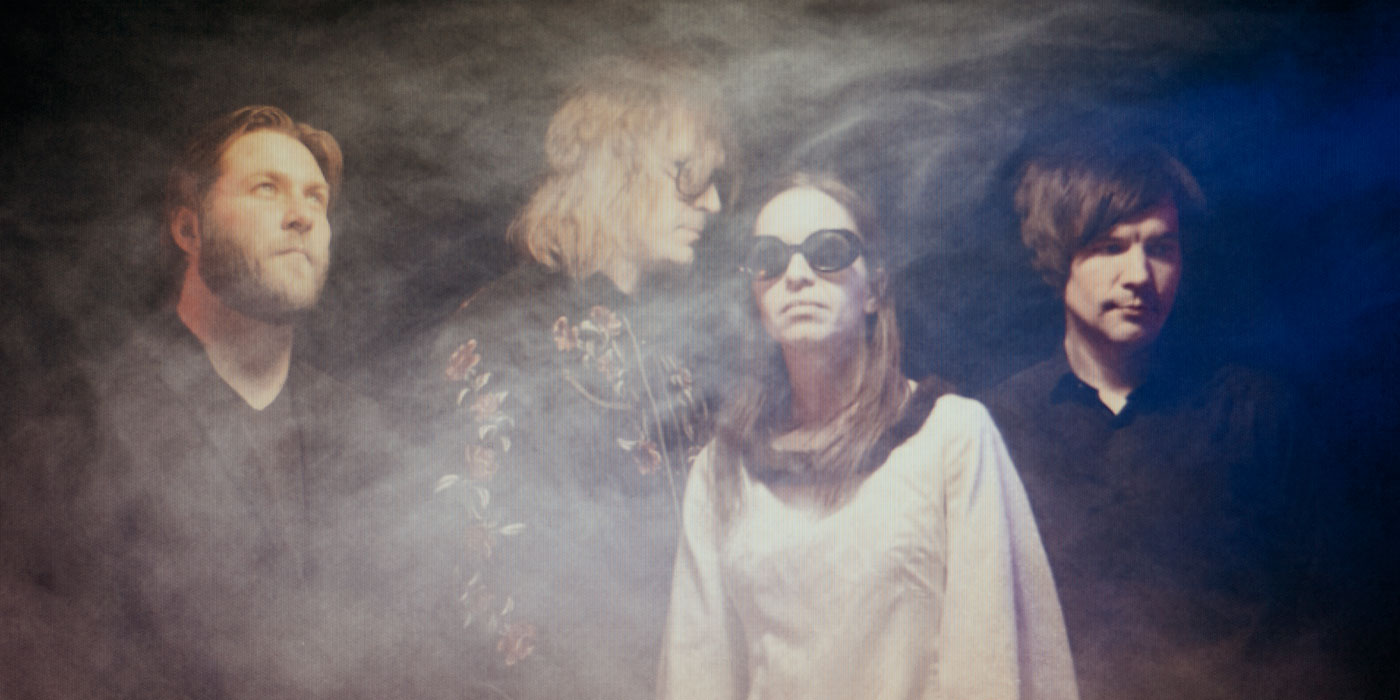The last couple years have produced a bumper crop of moody, murky post-rock, and the latest gem of the harvest is the meticulously elegant Until in Excess, Imperceptible UFO from Montreal’s Besnard Lakes. Sprawling and alien, the album spares no Floydian studio trick or angelic harmony to create a thundering, intergalactic opus. Singer and guitarist Jace Lasek was kind enough to chat with me before the band rolls into town for their Thursday show at The Frequency. [spacer height=”10px”]
In the past, the Besnard Lakes was largely led by you and your wife, Olga. Do you feel now that you are a more cohesive band, or do you feel as though others are still helping you interpret your and Olga’s vision?
“I definitely think there’s been more of a band integration over the years. They [Kevin Laing and Rich White] have been with us since 2009 now, so it’s hard to ignore them. It makes it a lot easier for us in the studio; it’s a huge load off that we don’t have to worry about. Like, on some of the earlier records we’d have to figure out drum parts and intricate guitar parts because we do everything ourselves. Olga and I aren’t really drummers, so having Kevin and Rich in the band is great. Kevin can play real drummer drum beats, so they’re totally helpful.”
Elephant Stone, Dirty Dancing
Thursday, November 7, 2013
The Frequency
9 PM; $12/$14
The sound on this album is much more atmospheric than your previous release. Was this the result of more total band input or did it just unfold that way naturally?
“I don’t know, I don’t think it was a conscious decision either way. I know there was one song for sure we were going to scrap, then Rich came in with this beautiful guitar line on top of it and it became a song. That ended up making it super atmospheric. We were going to throw the song away otherwise, so there’s influence there.”
You guys go into the recording studio cold. This sounds like many artists’ nightmare, but what about this method works for you guys?
“It actually is a total nightmare sometimes. You can’t just tell yourself when to be creative, but we have to force ourselves to do that because when you’re in the studio and you’re busy all the time, you don’t have a lot of choice. Sometimes it works out really well, because you have to work on your feet. A lot of the time it’s really frustrating, though, because you’re not coming up with stuff when you need it and you start to worry you may have lost it. But most people don’t do it that way, so the added pressure sometimes takes its toll. There are definite drawbacks but it’s good.” [spacer height=”5px”]
How does this approach translate to your live show? Do you feel like the songs are always developing?
“I think maybe? When we first start playing our songs live we’re like a cover band. When we first start practicing our songs it’s in the studio, but by the time we go out on tour the songs are still constantly evolving. We’re always trying to figure out how to make them better and a happy accident may happen live. Some things are elaborated on, some things shortened; we’re constantly toying with them. It’s fun for us because it keeps the songs fresh much longer.”
You guys have done some soundtracking for movies and television in the past. Is that starting to filter into your work or is that a separate thought process?
“I think it factors into the making of this one a bit because we were doing a lot of soundtracks at the time. Obviously for a soundtrack you have to be pretty subtle and ambient and atmospheric — at least for the stuff we were doing — so it sounds like it crept in. But it’s usually separate because with a soundtrack you have to be minimal and we’re… not that.”
You all have gone out and produced for other people and collaborated with other people. Do you feel these outside forces creeping in or are you guys pretty hermetically sealed?
“I get influenced because I’m always working with other bands and in the studio experimenting. Because I’m using those tools all the time, then when we’re making our own stuff I have all these mental notes that I have from working with other people. Sometimes I’ll just blatantly steal the idea, if it’s really good. So in that sense, when I’m working with other bands I’m really going to school to learn about how I’m going to make the next Besnard record.”
You have visited Madison once before — what are you looking forward to? It’s my impression that it’s fairly analogous to Canada.
“Oh yeah, yeah, that whole northern region actually. I’m from a small place in central Canada, near Regina, and a lot of those Midwestern places always remind me of home. I don’t know if Madison is a farming community but Regina was, so there are always a lot of humble people; there’s never really a lot of pretension. You just get by on the merit of being a good person. There’s a really homegrown attitude about the people that’s really comforting.”



